The 2024-25 Faculty Fellows
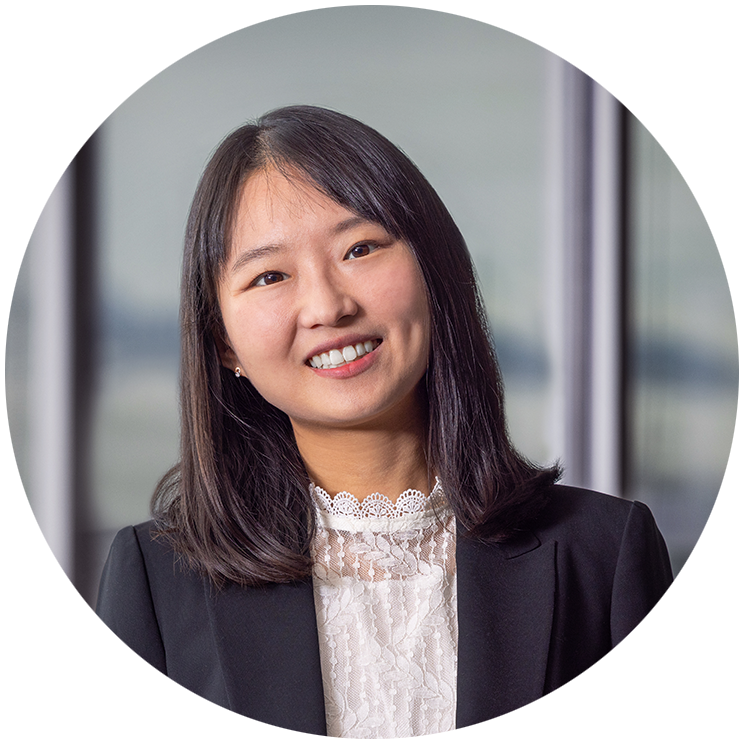 Mijeong Kwon is an Assistant Professor of Management specializing in
Organizational Behavior. She teaches both undergraduate and graduate
courses in various formats, including in-person, hybrid, and fully
remote settings. Her teaching philosophy revolves around adapting to the
unique needs of each class and fostering meaningful connections with
students. In in-person courses, she integrates diverse activities to
harness the benefits of face-to-face interaction, while in online
courses, she emphasizes a clear, structured approach to ensure that
students can easily follow and engage with the material.
Mijeong Kwon is an Assistant Professor of Management specializing in
Organizational Behavior. She teaches both undergraduate and graduate
courses in various formats, including in-person, hybrid, and fully
remote settings. Her teaching philosophy revolves around adapting to the
unique needs of each class and fostering meaningful connections with
students. In in-person courses, she integrates diverse activities to
harness the benefits of face-to-face interaction, while in online
courses, she emphasizes a clear, structured approach to ensure that
students can easily follow and engage with the material. 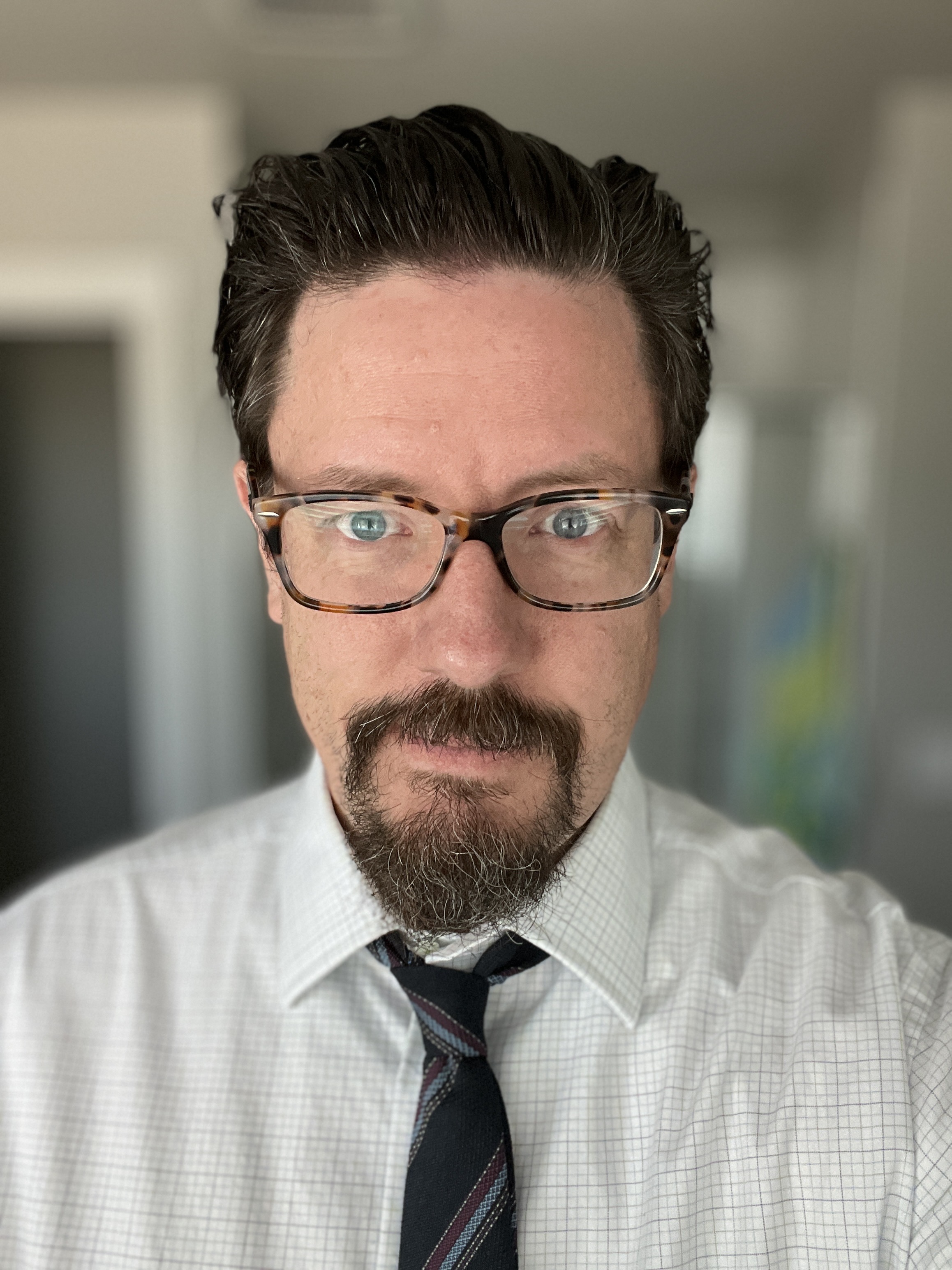
Sam McGuire is an Associate Professor of Recording Arts in the College of Arts & Media. His research and professional interests center on social media and the musical properties of historic spaces. Each summer, Sam leads a popular study abroad program to the Czech Republic, where students immerse themselves in the historic musical sites of the Royal Lobkowicz family. As a Faculty Fellow, he aims to help faculty and students integrate technology into education, enhancing accessibility and the overall learning experience.
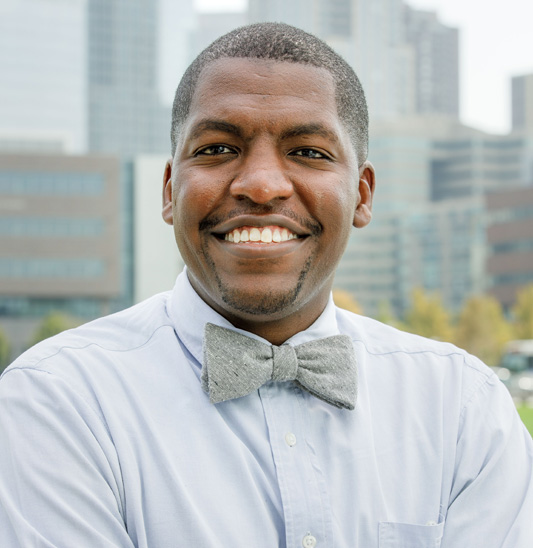
Joshua Martin is Assistant Teaching Professor in The School of Education and Human Development at the University of Colorado Denver. For the past six years, Joshua has supported new special education Alternative Licensure Candidates in the ASPIRE to Teach Program. As an Alternative Licensure Instructor (ALI), Joshua teaches, mentors, coaches, and evaluates new teacher candidates. In addition to his work as an ALI, Joshua also co-teaches a Curriculum and Instruction MA course on Curriculum Theory. This year, Joshua has taken on a new role as a Parentship Specialist supporting the development of meaningful collaboration processes and new teacher support systems with Colorado school districts.
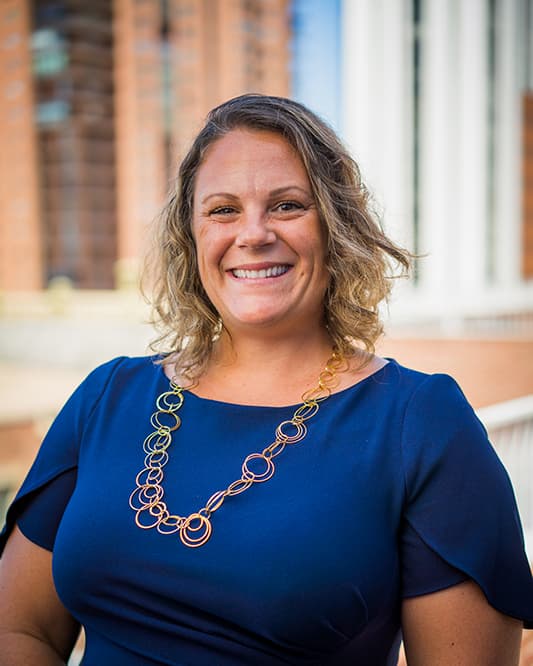
Kathryn Schamu, Senior Instructor in The School of Education and Human Development at the CU Denver, teaches in the Curriculum and Instruction (C&I) MA Program. Kate has more than 15 years of teaching experience in K-6 Education and Higher Education. For the past six years, Kate has supported K-12 teacher development through her mentorship and coaching as an Alternative Licensure Senior Instructor (ALI) in the ASPIRE to Teach Program, and most recently, served as the ALI Partnership Tech Specialist. As a member of a multicultural family and raising a multilingual child, Kate is passionate about equitable language policy and is co-authoring a research project, “Equity and Ideological Clarity in a Montessori Dual Language School.”
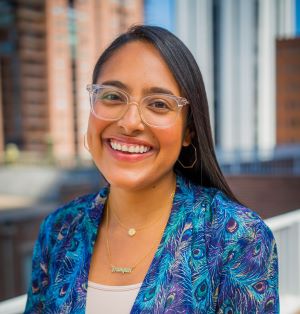 while teaching, serving as a
university DEI facilitator, working as an Assistant Director at a
Multicultural center, through her scholarly writing, and in her daily
work. Her work is aimed at honoring her first-generation journey,
immigrant parents, and any historically excluded individual who does not
see themselves represented in higher education. This commitment shapes
her teaching as she aims to adopt an intersectional and inclusive lens,
bringing in realities to the classroom that rarely are explored. She
loves learning from students and is thankful for the insight they offer
every day. She aims to never take their stories for granted. Her goal is
to offer inclusive, relatable, and relevant support to students. She
enjoys offering research opportunities, graduate school support,
professional development, and meeting students where they are at.
while teaching, serving as a
university DEI facilitator, working as an Assistant Director at a
Multicultural center, through her scholarly writing, and in her daily
work. Her work is aimed at honoring her first-generation journey,
immigrant parents, and any historically excluded individual who does not
see themselves represented in higher education. This commitment shapes
her teaching as she aims to adopt an intersectional and inclusive lens,
bringing in realities to the classroom that rarely are explored. She
loves learning from students and is thankful for the insight they offer
every day. She aims to never take their stories for granted. Her goal is
to offer inclusive, relatable, and relevant support to students. She
enjoys offering research opportunities, graduate school support,
professional development, and meeting students where they are at.
Applications for AY 2024-25 are now closed.
Plan now to apply for the 2025-26 Fellowships
The Faculty Fellow program is open to faculty from all academic disciplines, ranks, and appointments, including IRC faculty. Faculty Fellowships are 1-year awards with a $2,000 stipend. Faculty Fellows select an area of focus related to innovations in teaching practice or emerging trends/research and develop a program (e.g., a community of practice or a short course for the TIPS Course Development Institute) for faculty, sharing their expertise and elevating the critical work of teaching at CU Denver. Faculty Fellows also serve as advisors and colleagues with TIPS Division staff. They may also share their expertise with the broader campus community through 1-on-1 faculty consultations and/or classroom observations. Applications are typically due in late April each year.
We have six fellowships, including areas of focus on two strategic priorities for CU Denver and the TIPS Division. Descriptions of the categories for CETL Faculty Fellowships are as follows:
Faculty Fellow, Open Pedagogy (1-2 Fellowships Available)
Open pedagogy is an area of growing importance for CU Denver. However, efforts in this area often focus on developing or evaluating open educational resources; many avenues exist to explore and lead within the broader lens of open pedagogy. Some possibilities include the following:
- Advocate on behalf of OER and open education as a strategic benefit and support to university equity and affordability efforts (see: Strategic Plan, Strategic Enrollment Management Plan)
- Create opportunities for cross-disciplinary/departmental collaboration and sharing on open education projects
- Create, facilitate, and/or co-facilitate short courses for the Course Development Institute on open education-related practices
- Be a resource for instructor colleagues on open education, open pedagogy, and the pedagogical affordances of OER through, among other avenues, the open pedagogy consultation service
- Facilitate and/or participate in open education-related programming, including Open Education Week
Faculty Fellow, Inclusive Pedagogy (1-2 Fellowships Available)
Inclusive pedagogy is of key importance to our student's success, our campus's identity, and our goal of becoming an institution that welcomes and empowers all learners. There are many possible avenues to explore within inclusive pedagogy; here are a few examples:
- Create, facilitate, and/or co-facilitate short courses for the Course Development Institute on inclusive pedagogy
- Share, develop, and distribute resources and events related to inclusive pedagogy and related areas of practice (e.g. universal design for learning)
- Advocate on behalf of inclusive pedagogy as a strategic benefit and support to university equity efforts (see: Strategic Plan, Strategic Enrollment Management Plan)
- Create opportunities for cross-disciplinary/departmental discussions and community learning on inclusive teaching practices
- Advise campus leadership and the broader community on inclusive pedagogy, centering the well-being of faculty and students alike in important discussions on campus priorities
Faculty Fellow, Teaching Practices & Innovations (2-4 Fellowships Available)
This category is intended to be open to faculty areas of interest related to teaching practice and innovations. What emerging areas of pedagogy need deeper exploration? We are excited to learn about your areas of passion and expertise!